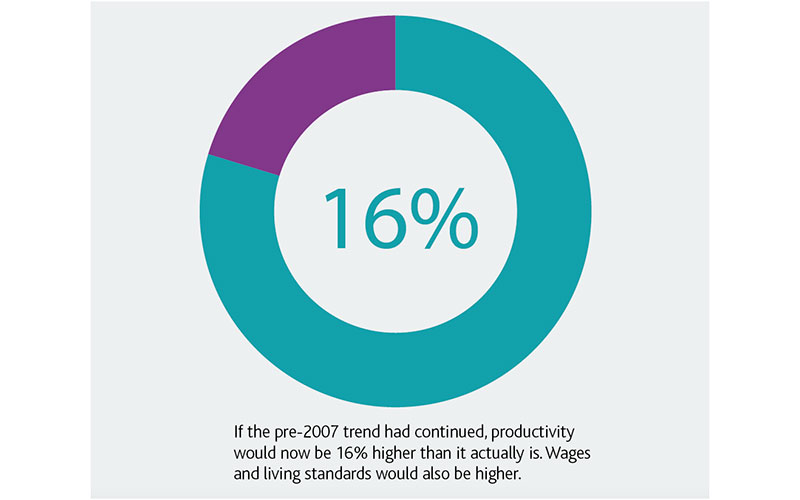The Intelligence: Good recruitment is a key driver of productivity

Picking the right people for the job is key to any country's productivity growth.
Productivity is a priority for both businesses and governments. And that’s because increasing it is the only sustainable way to deliver better jobs and increase living standards; productive businesses pay higher wages and are more competitive.
But while the UK has a strong labour market, with record high rates of employment and the lowest unemployment rates since the mid-1970s, its productivity growth has remained below long-term trends since the financial crisis. So much so that, if the pre-2007 trend had continued, productivity would now be 16% higher than it actually is. Wages and living standards would also be higher.
The labour force is the greatest asset of any organisation and a key driver of productivity. With demand for skills mounting and fierce competition for talent, hiring the best person for every job is crucial to the success of a business. Yet picking talent remains the most pressing challenge for employers. Poor hiring decisions are not only common, but the resulting lost productivity is substantial – though often overlooked.
Good recruitment is vital in sourcing the talent needed for a business to thrive and creating a more diverse, agile and better-performing workforce. From flexible working practices and diversity & inclusion, to investing in skills and innovation, recruiters are ideally placed to advise businesses on how to provide an enabling environment in which their people can perform at their best.
There is increasing recognition that diverse organisations, in terms of gender, age and ethnicity, perform better than competitors with homogenous teams. A diverse team means a more extensive range of backgrounds and experiences, leading to more innovative solutions and better quality decision making. Recruiters can take a lead on inclusive growth and deliver recruitment practices that promote diversity, resulting in better performance and sustainable growth.
According to JobsOutlook, nine in 10 employers cite the importance of an agency’s expertise in terms of regions, sectors and skills covered. By providing this strategic support, recruiters can help employers identify and meet future staffing needs, which in turn will drive future growth.
Good recruitment is also about understanding and addressing the evolving business needs, especially when striving to harness AI and technology-driven productivity gains. Recruiters can help businesses fill those skills gaps, which would allow them to maximise the technological benefits. Looking at the longer term, recruiters can identify and inspire the potential managers and leaders of tomorrow. Just under 200 REC members are already registered as Future of Jobs Ambassadors, and working with local schools and colleges to build better bridges between education and work.
Every day, good recruitment professionals are fuelling the UK’s business engine. They advise employers on how to invest in people and skills, plan their workforce and adopt innovations that will help boost productivity and unlock future growth.
To find out more about the link between good recruitment and productivity, visit www.rec.uk.com/good-recruitment-campaign
